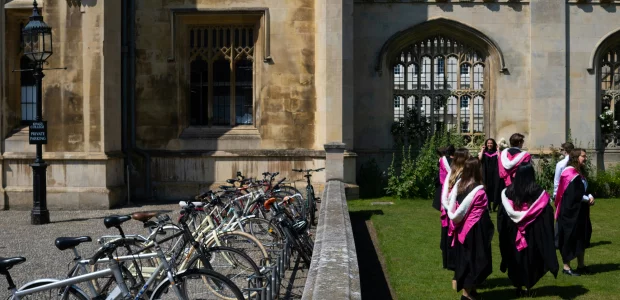
By integrating scholarships into their recruitment campaigns, MBA programme directors aim to attract more candidates who possess exceptional academic and personal qualities. Institutions that have designed such opportunities specifically for applicants of a particular nationality may also do so with the aim to raise their profile in the field of executive education.
Ranked 91st in the Financial Times MBA top 100, University of Edinburgh Business School (UK) is determined to help Americans with Scottish ancestry fund their studies. According to Mette Friis, Head of Marketing, Student Recruitment and Admissions, the initiative is part of the school’s broader strategy to improve its status in the US.
Scholarship opportunities
Many nationality-specific scholarships are funded by donations from alumni and companies, says Caroline Diarte Edwards, Director of Fortuna Admissions and a former Admissions Director for the MBA programme at INSEAD. However, these can be difficult to allocate because there can be strings attached to accepting other people’s money. Ms Diarte Edwards stated:
When I was at INSEAD, we had scholarships that we weren’t able to award because they had a particular target and we didn’t have any suitable students.
By funding the scholarships themselves, schools can reach more applicants.
Scholarships are increasingly important to students as tuition fees have been rising in recent years. Average MBA fees on the FT’s top 100 courses are now equivalent to 8.7 months of gross annual salary three years after graduation, up from 6.2 months in 2006. Nearly 70% of MBA students polled in 2016 by education research agency CarringtonCrisp said they would be more likely to consider a business school if they received a scholarship.
Another educational institution which has recently launched its own scholarship programme is Melbourne Business School (Australia). Its Hellenic scholarship, covering AUD 85,470 (USD 63,000) tuition fees and some living costs, is only available to Greek nationals who secure a place in the school’s MBA programme through the general application process. Its creation reflects Melbourne’s position as host to the largest Greek community outside of Europe, according to Alex Christou, Director of Corporate Relations and Partnerships.
"Greek students tend to be at least bilingual and many have two undergraduate degrees", he says. According to Mr Christou, one aim of the scholarship scheme is to send MBA talent back to Greece with the hope of improving the economic situation on the ground.
Check out: MBA Scholarships, Assistantships and Grants
New doors to international education
At Nyenrode Business Universiteit in the Netherlands, the Orange Tulip scholarship has helped MBA students from Brazil, China, Indonesia, Mexico, Russia, South Korea, Thailand and Vietnam study at the school since 2010. The grant is funded by Nuffic, a government agency jointly controlled by the Ministry of Education and Ministry of Foreign Affairs, as part of an effort to build links between the Netherlands and countries with different student intakes.
Fabiola Osornio is among those on the MBA course in 2017 thanks to an Orange Tulip scholarship. The 28-year-old first came to the Netherlands during an exchange visit from her home country, Mexico, as a part of her Bachelor’s degree. At the moment, she is using a bank loan to make up the shortfall in her living expenses while completing her MBA, and says she could not have funded the study in the Netherlands by herself. Ms Osornio adds:
A big door was opened to me. This is a big investment.
Applicants who meet the scholarship’s nationality criteria and secure a place on the MBA programme can receive a discount of up to three-quarters of the tuition fees, which amount to EUR 37,500 in 2017.
However, it seems this award has become less generous than in the past. Javier Arias, the school’s international marketing manager, explained that their scholarship used to cover 100% of the tuition. After discovering that some people’s motivation to apply was only for the sake of funding, the university had to change its practice.
Source: The Financial Times



Comments